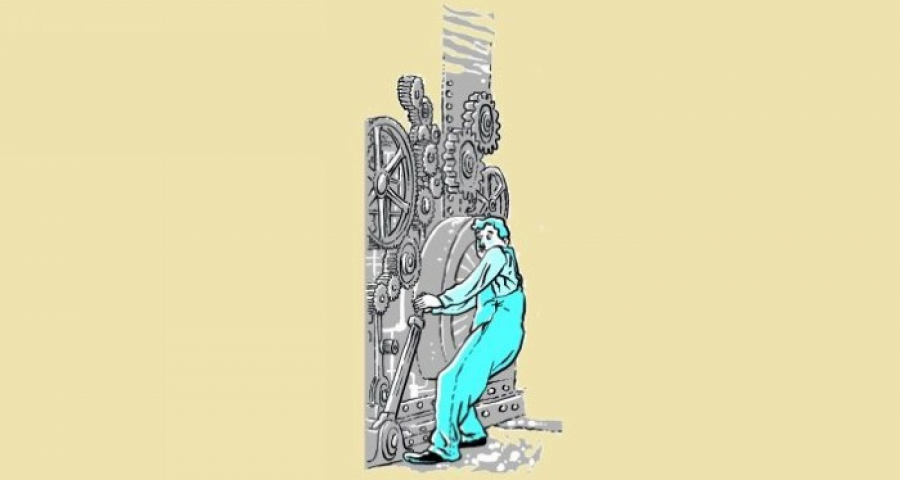If we want to have a fair relationship with work, we must remember that first it is man and woman who ennoble work with their presence, their hands and their intelligence.
by Luigino Bruni
published in Il Messaggero di Sant'Antonio on 06/07/2023
The environmental, financial and military crises of the beginning of this millennium, all of them so serious that they cannot be ignored, however, also risk making us underestimate or forget a triple crisis that we talk too little about: the crisis of faith, of grand narratives and of generation. A world that no longer awaits paradise, that has forgotten collective narratives and that does not bring forth children, no longer finds sufficient meaning to live and thus to work. The so-called ‘Great Resignation’ of millions of workers, young and middle-aged, who quit their jobs without having another one, certainly have many reasons, but there is one that is becoming dominant. It is failing to answer a crucial question: “Why should I work if I no longer hope for a promised land (above or below the skies), if I there is no one hoping for a better present and future as a result of my work?
We must never forget that the world of work has never created nor exhausted the meaning of work. Work is an important part of the meaning of life, but it does not exhaust it; we need something else besides work to live well, even when work is beautiful and fulfils us completely. In the past, this ‘something else’ was the family, the ideologies, religion: these gave work its proper meaning. Then the factory, the fields or the office reinforced that meaning, but it was born outside of work. Work was good because before and after work there were things and people greater than work. Work was and is great, but to be seen in its true greatness it must be looked at from outside, from a door or a window that opens onto the outside of the workplace; because without this larger space that prepares and follows work, the work room is too small, the roof of the factory or office is too low for that infinitely sick animal that is homo sapiens to be able to stay there feeling well without suffocating, and to stay there for a long time.
Our Constitution is founded on work because work was founded on something else, it was founded on life. If the constituent mothers and fathers had not been convinced that work was only a part of life, that it was that middle zone between a before and an after, they would never have written Article 1 the way they did; because to have founded the constitution on work that was not founded on anything else would have been the greatest ethical heresy. Also because in that something that precedes and follows work there are the children who do not work because they do not have to work, the old who no longer work, those who could not work or will never work because life prevents them from doing so. Founding democracy on work is only good if we remember that the word work is second, not first.
Work ennobles man, it is true. Working makes us better and increases the dignity of life and of the money we need to live, because money-salary becomes an expression of that civil reciprocity that is the good cement of society. But if we want to have a fair relationship with work, we must remember that first it is man and woman who ennoble work with their presence, their hands and their intelligence. Because if an activity, which could be performed by a machine is instead performed by a free human person, that person gives that act - a university lecture, a medical examination, a work of art - greater dignity. So every time we expel workers and insert machines, we are reducing the dignity of that workplace. It is our work that increases the dignity of the earth.
Credits foto: © Giuliano Dinon / MSA Archive








